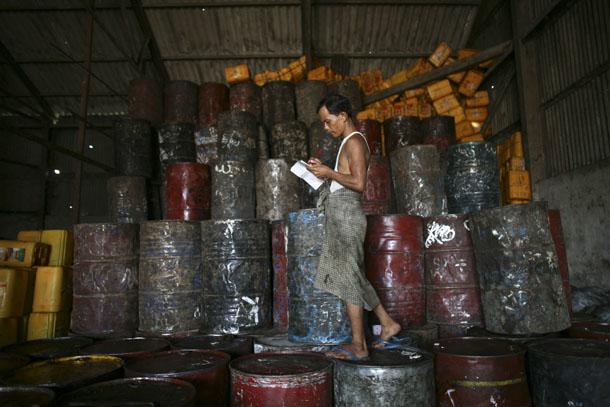
OIL & GAS RISKS $2.2 TLN

Oil, natural gas and coal producers are risking $2.2 trillion by investing in projects for which there will be no demand if the world meets a United Nations target of limiting the rise in temperature to less than 2 degrees Celsius, a non-profit think tank said.
No new coal mines are needed, oil demand will peak around 2020 and growth in gas will disappoint industry expectations, Carbon Tracker Initiative said Wednesday in a report. The U.S. has the greatest exposure with $412 billion of projects at risk up to 2025, followed by Canada with $220 billion, China $179 billion, Russia $147 billion and Australia $103 billion, according to the think tank.
"Too few energy companies recognize that they will need to reduce supply of their carbon-intensive products to avoid pushing us beyond the internationally recognized carbon budget," James Leaton, head of research and co-author of the report, said in a statement. "Clean technology and climate policy are already reducing fossil fuel demand. Misreading these trends will destroy shareholder value."
Policy makers, including about 140 heads of state, are scheduled to meet in Paris next month as they work toward an international agreement to reduce greenhouse gas emissions and limit global warming to 2 degrees Celsius (3.6 degrees Fahrenheit). Europe's biggest oil companies, including Royal Dutch Shell Plc and Total SA, have come together to promote natural gas as a cleaner fuel to meet growing energy demand.
Oil Risk
The biggest risk is to the oil industry, with $1.3 trillion of spending on new projects and $124 billion on existing ones unlikely to be needed over the next decade because there won't be any growth in demand, Carbon Tracker Initiative said. About $532 billion of natural gas projects and $219 billion of coal will also be left "stranded," it said.
In oil, 43 percent of investments in new projects and 33 percent of new supply should be shelved to align with a 2 degree scenario, according to the report. This will help avert 28 billion tons of carbon dioxide emissions. Overall, energy companies need to avoid generating 156 billion tons of CO2 to work toward achieving climate change goals.
Central Role
Energy companies will have to be at the center of efforts to cut emissions. Scientists warn that burning fossil fuels has put the planet on track to warm by more than the globally-agreed goal of 2 degrees, melting glaciers and ice caps, raising sea levels and prolonging droughts.
The UN in June urged the heads of six European oil majors to plan for phasing out fossil-fuel emissions by 2100. The companies had the previous month come together to discuss ways they can better engage in the climate debate. In that debate, they estimate energy demand will continue to expand, driven by developing nations such as India and China and a growing middle class with more disposable income.
The world still needs a lot of coal, gas and oil and carbon-based fuels will meet three-quarters of energy needs over next 30 years, Exxon Mobil Corp. Chief Executive Officer Rex Tillerson said Oct. 7 in London.
-----
More:





